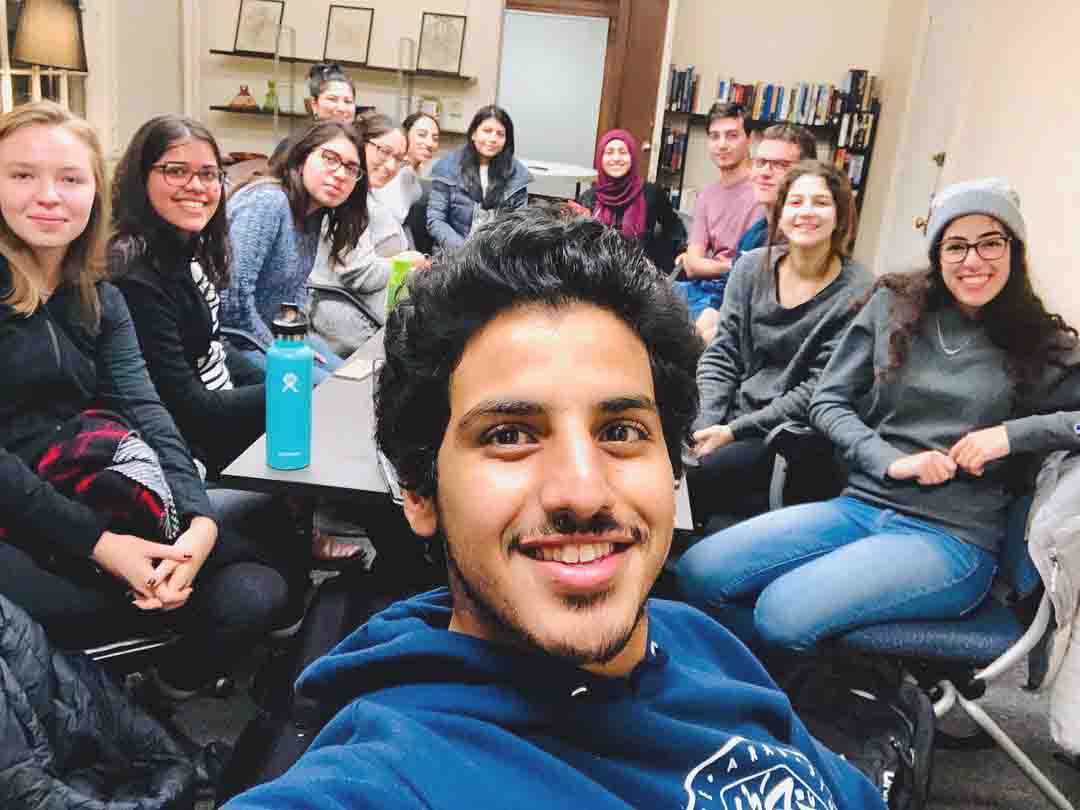
Yale Arab Association
In the hopes of gaining official recognition as a cultural house from the University, the newly-formed Middle Eastern and North African Cultural House Club will offer programming similar to that provided by established cultural centers on campus next semester.
The establishment of the club, which will be formally registered as a student organization in January 2019, was spearheaded by members of the Arab Students Association and other cultural groups, with the support of the Yale College Council. The MENA club will host social events and activities at their current space in room 110 on 305 Crown St., similar to the programming offered by the University’s four official cultural centers. The group gained access to the space in October after they approached the YCC with the idea to designate a cultural space for the MENA community. Arab Students Association President Shady Qubaty ’20 said that the club will establish a peer liaison program — a central component of programming offered by the established houses — that will begin operating in the fall of 2019.
If the University formally recognizes the MENA cultural center, the center will receive administrative funding and a bigger dedicated space.
Sammy Landino ’21, YCC’s task force director and a staff columnist for the News, said that the club will need to demonstrate student interest and “full functionality” as a traditional cultural house to receive administrative support. Seventy-six percent of 2100 respondents to YCC’s Fall Survey said they felt “strongly positive” or “positive” about the potential establishment of a MENA cultural house.
“The best argument we have to Dean Chun and other administrators is to show that MENA students are operating in the capacity of one of the cultural houses without having a house,” Landino told the News. “We want to show that because they’re just as successful and they have student interest, they deserve a house by putting truth to power.”
Chun told the News that creating a new house or cultural center is a “big endeavor” that takes time and deliberation. He added that he is happy to see “community building” among the MENA students and the formation of their separate club, but said that in the past, cultural houses have only been designated after “many, many years” of the organizations’ growing influence and alumni involvement.
Qubaty said that the organization has been reaching out to the Persian Students Association, Friends of Turkey and Ward 1 Alder Hacibey Catalbasoglu ’19 to build interest in the project.
“Essentially, we need Yale to meet us halfway,” Qubaty told the News. “Students leading the effort should not remain idle while waiting for the gears of Yale bureaucracy to turn.”
Catalbasoglu told the News it was “imperative” to establish a MENA cultural center where students can come together, especially considering the current political climate in which Middle Eastern and North African Americans are “seen as scapegoats and targets by certain groups nationally.”
But despite the efforts’ focus on students with a MENA background, Qubaty stressed that “students have tried to create a homely environment for the room to be open, not only to people from the region, but also to anyone interested in the region.”
The club held its first meeting on Wednesday, Nov. 14, and will hold its second meeting this Thursday.
Jever Mariwala | jever.mariwala@yale.edu
Viktor Dimas | viktor.dimas@yale.edu







